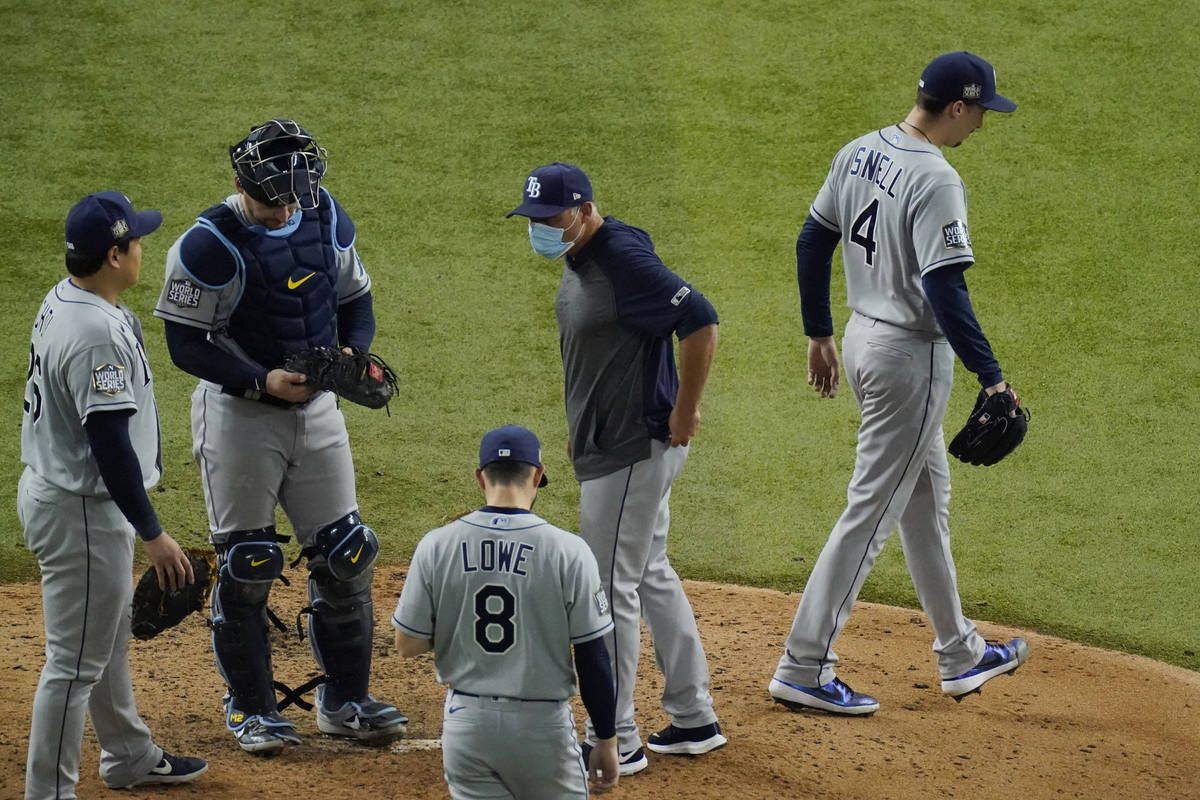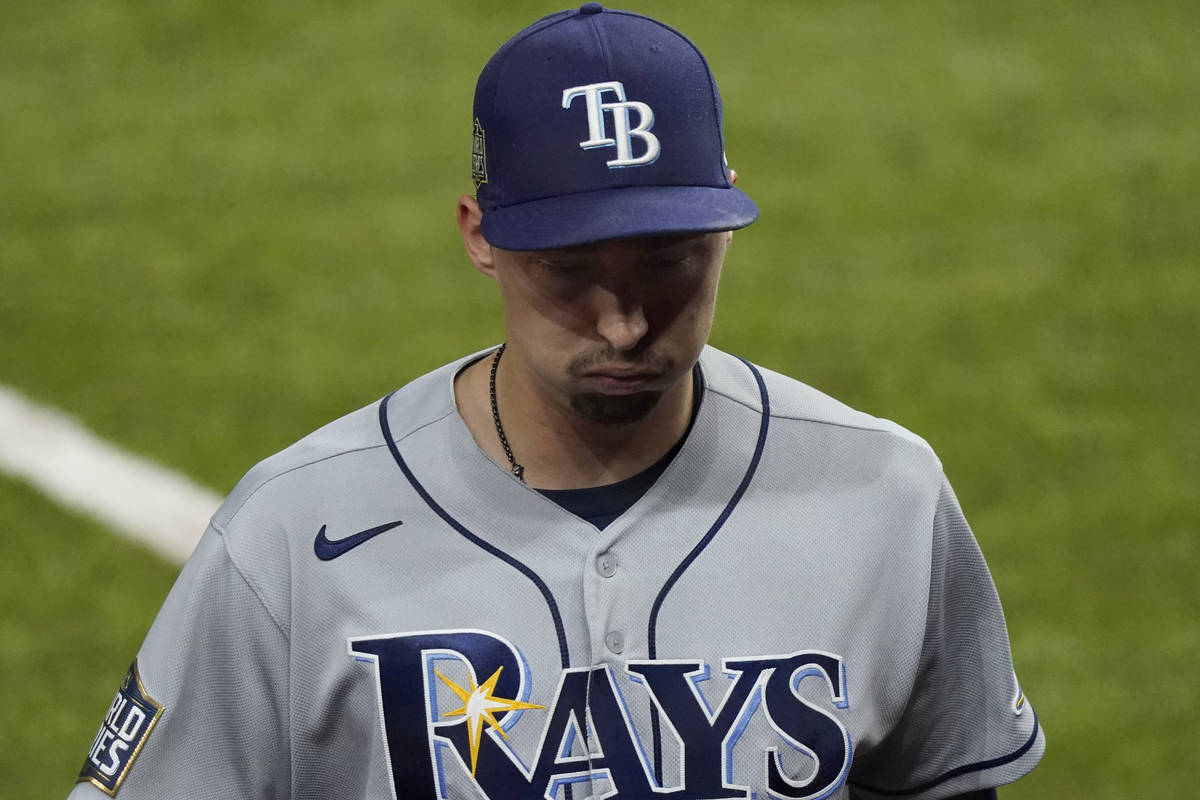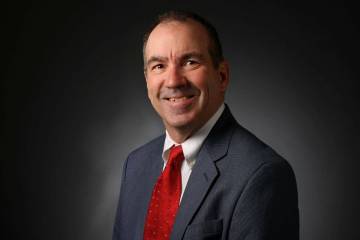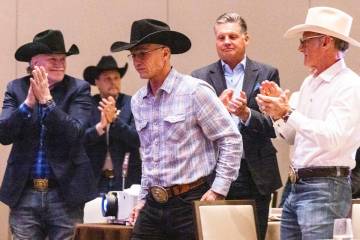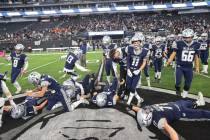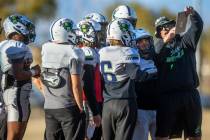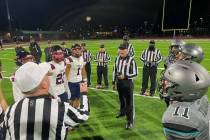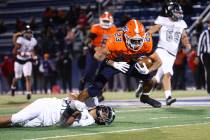Blake Snell shouldn’t have been pulled, local ex-players say
In baseball, they call the offseason the “Hot Stove League.” It’s a metaphorical place where baseball people talk about the game during the forlorn months of winter.
This year it started early.
Tampa Bay’s Blake Snell was pitching the game of his life in Game 6 of the World Series, striking out nine before being removed by Rays manager Kevin Cash when he gave up his second hit, a single, with one out in the sixth inning.
Cash, following the same analytics-driven script that had the Rays in the World Series, replaced Snell with Nick Anderson, who allowed two runs in handing the Dodgers a 2-1 lead and essentially their first Series title since 1988.
Three former major leaguers now living in Las Vegas could not have disagreed more with Cash’s decision, tossing logs days later into the hot stove.
“As dominating as any pitcher has ever been in the World Series, in any game, that was Snell,” said Bill Madlock, a four-time National League batting champion who played baseball the way many still believe it should be played — i.e., when a hard slide to break up a double play was called for, he obliged.
Bill Madlock would have admired both of these guys ... https://t.co/3702GuNWGY
— ronkantowski (@ronkantowski) August 22, 2019
“When they’re talking about they’ve got the script written out, 30 or 40 scenarios, what kind of game is that?”
Duke Sims was catching for the Texas Rangers when he retired in 1974, one season after Madlock broke into the majors for the same club.
“Seventy-two pitches (actually 73), he doesn’t come out of there,” said Sims, who caught Luis Tiant and Sam McDowell with the old Cleveland Indians when 73 pitches was considered just getting warmed up.
“He was throwing the ball hard, had a great breaking ball, was spotting in location. Why do you need a manager if you’re living by the computer and analytics? You could have a guy sitting in the press box pushing buttons.”
Longtime Las Vegan Duke Sims (catcher, No. 12) appears slightly bemused by all of this ... https://t.co/oONMARu1Wc
— ronkantowski (@ronkantowski) March 20, 2020
Before Jerry Reuss became a broadcaster for the Las Vegas Aviators, he won Game 5 of the 1981 World Series for the Dodgers. He allowed one run, five hits, walked three, struck out six and threw 108 pitches in a complete game. Tommy Lasorda never budged to “Bring In the Right-Hander,” the title of the left-handed Reuss’ 2014 book.
Imagine if it was possible for Kersh to channel his inner Jerry Reuss and just throw a complete game....takes care of the pen question!
— Michael Urrutia (@DariansDad10) October 25, 2020
“He could have come out there to talk to me, but he didn’t have anybody warming up in the bullpen because the day before he had used everybody,” Reuss said with a laugh.
“I know we had analytics in 1981, scouting reports, and there were some details they use today. But they weren’t relied on so heavily. Back in those days, managers were more autocratic.”
Especially when Bob Gibson was pitching.
MLB Twitter reacts to Rays pulling Blake Snell from Game 6. https://t.co/hoWoKAB2rL pic.twitter.com/wO9pIax3uv
— theScore (@theScore) October 28, 2020
Around the horn
— Speaking of complete games pitched under duress, did you know the Washington Senators’ Walter Johnson married the daughter of Rep. Edwin Roberts of Nevada a few hours after pitching a four-hitter against the Philadelphia Athletics in June 1914?
After his Hall of Fame career, “The Big Train” ran for Congress himself.
Wrote the Washington Post: “Johnson didn’t share his fellow Republicans’ killer instinct. He hardly campaigned, and when he did, he often focused on local issues and spoke in platitudes. He refrained from going negative.
“President Trump would have called him low energy.”
A great piece by my friend @ffrommer. As @JFeinsteinBooks would say, politics and sports inevitably collide. https://t.co/BtRTszprYU
— Kent Wilson (@lkentwilson) October 30, 2020
President Calvin Coolidge (left) and Washington Senators pitcher Walter Johnson (right) shake hands. There is no penalty, a red card, or yellow card building ties Politics & Sports go for a #HardHitting pic.twitter.com/WYW9xYcHQG
— S. Francis Hector TS8 at Midnight (@154Pledge) February 14, 2018
— In a recent column about Las Vegas landing several NCAA championship events, I wrote that Jerry Tarkanian wouldn’t have believed it, given his bitter battles with the organization that prompted his famous quote: “The NCAA was so mad at Kentucky they gave Cleveland State two more years of probation.”
This week, it was the Massachusetts women’s tennis team that felt the NCAA’s heavy and misguided hand. In self-reporting a $252 clerical error regarding an off-campus telephone jack, three years’ of victories and the school’s first conference championship in 15 years were vacated.
Meanwhile, the basketball teams at Arizona, Louisiana State, Kansas and Louisville (to name a few) continue to hoop it up regardless of how many pay-for-play schemes are uncovered via federal wiretap.
This news sickens me when u have innocent kids & a tennis coach Judy Dixon punished unfairly . Coach Dixon a legend has been a legend in her 25 yr career. Even the NCAA said there was ZERO intent to cheat. NCAA MUST make amends . @GlobeChadFinn @GlobeBobRyan @A10Talk https://t.co/M520XoMwf1
— Dick Vitale (@DickieV) October 27, 2020
0:01
You would never know it by talking to him, but Madlock, who still gives private hitting lessons through the Vegas Valley Batter’s Box, once had one of the game’ shortest fuses.
During a 1975 game at the Astrodome, Madlock was ejected for arguing a close play upon which he was called out by first base umpire Art Williams. Before he was through using swear words that would have impressed Ralphie’s dad in “A Christmas Story,” Madlock was ejected again, by home plate umpire Bruce Froemming.
Getting kicked out twice on the same play takes a lot of !@#$% as well as a serious helping of blankety-blanks. Even in today’s game.
There's a reason they called him #MadDog pic.twitter.com/To8IctmHfc
— Bill Madlock & Kent Tekulve (@MadlockTekulve) October 29, 2020
Contact Ron Kantowski at rkantowski@reviewjournal.com or 702-383-0352. Follow @ronkantowski on Twitter.



